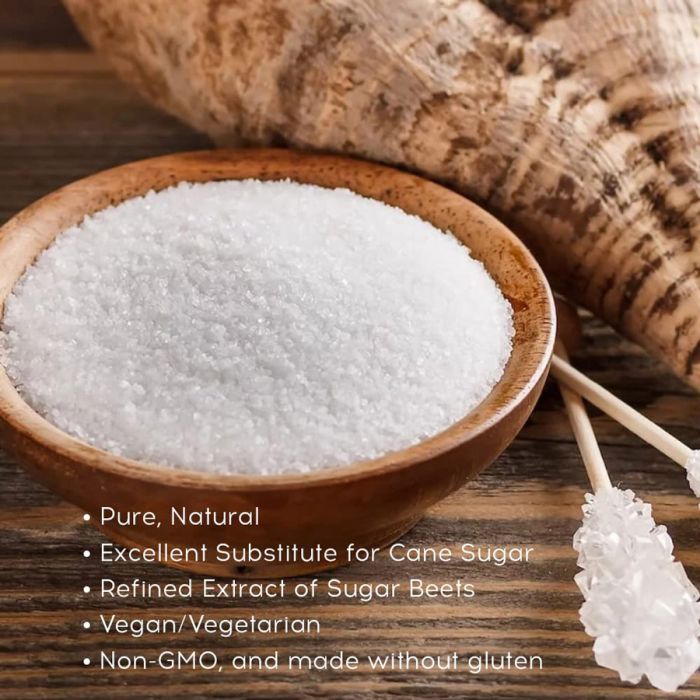The discussion of beet sugar vs cane sugar often includes comparisons of their effect on blood sugar.
The discussion of beet sugar vs cane sugar often includes comparisons of their effect on blood sugar.
Blog Article
Checking Out the Differences being used and Advantages Between Beet Sugar Vs Cane Sugar
In the culinary globe, the choice between beet sugar and cane sugar is not simply about sweetness yet includes a nuanced consideration of taste, application, and influence. While both sugars stem from different plants, each undertakes unique production processes that subtly affect their qualities and viability for different meals.
Beginnings and Production Procedures of Beet and Cane Sugar

Cane sugar, on the various other hand, comes from the sugarcane plant, a tropical lawn indigenous to Southeast Asia today cultivated in tropical zones worldwide. The production of cane sugar begins with the harvesting of cane stalks, which are crushed to launch the juice. This juice is then boiled to concentrate it, after which it is rotated in centrifuges to create raw sugar crystals. These crystals are further improved to produce the white sugar typically readily available in shops.

Nutritional Material and Health Considerations

When comparing the dietary content of beet sugar and cane sugar, it ends up being evident that both types basically give the exact same calorie values, with about 16 calories per teaspoon and no significant nutrient diversity. Each is composed nearly totally of sucrose, which is an easy carb that provides quick energy however does not have vitamins, minerals, or fiber. This resemblance encompasses their influence on health, particularly concerning blood sugar level degrees. Both sugars, when eaten over, can add to elevated blood sugar levels, a danger aspect for diabetes and other metabolic problems. Moreover, excessive intake can bring about weight gain and dental issues, as both sugars are similarly cariogenic, advertising tooth degeneration. From a wellness perspective, regulating consumption of any kind of kind of sugar, whether from beet or cane, is advisable to stay clear of these possible adverse results on health. Thus, neither holds a distinct advantage over the various other in regards to health and wellness advantages.
Taste Accounts and Culinary Applications
In spite of look at here now their similar chemical frameworks, see this site beet sugar and cane sugar differ subtly in flavor, which can influence their usage in various cooking contexts. Walking stick sugar commonly brings a hint of molasses, also in its refined kind, providing a warm, caramel-like undertone that boosts baked products, coffee, and chocolate-based dishes. This minor molasses flavor is especially valued in the cooking industry for including depth to desserts and pastries. On the various other hand, beet sugar is characterized by its very fine-tuned, neutral preference, making it a functional sweetener that does not change the taste profiles of dishes. This neutrality is especially helpful in delicate dishes, such as light pastries, creams, and some sauces, where the inherent flavors of various other ingredients are meant to stand out. Chefs and food manufacturers could choose one type of sugar over the various other based on the wanted taste result of their cooking creations.
Environmental Influence and Sustainability
While both beet and cane sugars are derived from plants, their environmental effects differ considerably due to the distinct methods of farming and handling required for each. Sugar beet cultivation frequently entails considerable mechanization, which can boost fossil fuel intake and carbon discharges.
Furthermore, the handling of sugarcane usually creates a substantial quantity of waste, including bagasse, which, although useful as biofuel, often contributes to air pollution if burned inefficiently. Sugar beet handling uses even more of the raw products, resulting in much less waste. Both sectors encounter difficulties in reducing their ecological footprints, but recurring technologies in agricultural techniques and waste administration are aiming to improve sustainability.
Economic Elements Affecting the Sugar Industry
The financial dynamics of the sugar market are dramatically affected by visit homepage global market demands and trade plans. In areas where sugarcane or sugar beet manufacturing is subsidized, manufacturers might have a financial advantage that enables them to offer lower rates on the international market.
Additionally, changes in worldwide demand for sugar, influenced by dietary trends and industrial usage in foodstuff, directly impact prices and manufacturing degrees. beet sugar vs cane sugar. Climate conditions also play a critical role, as they can considerably affect plant yields and, subsequently, the supply chain. This irregularity introduces a level of financial unpredictability that can result in financial investment volatility in sugar production sectors, affecting choices from planting to market method
Verdict
To conclude, both beet and cane sugar have special top qualities that fit different cooking demands. While cane sugar conveys a rich flavor perfect for improving baked goods, beet sugar's nonpartisanship is excellent for lighter meals. Nutritional similarities notwithstanding, their unique production procedures and environmental influences add intricacy to the option in between them. Therefore, understanding these distinctions helps cooks and consumers make notified choices that line up with their health, cooking, and ethical choices.
Report this page